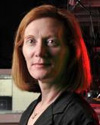 Margaret Murnane (Keynote Speaker)
Margaret Murnane (Keynote Speaker)
JILA Fellow
Distinguished Professor
University of Colorado, Boulder
“Why Diverse Teams will Meet the Science and Engineering Challenges of the 21st Century”
Dr. Murnane’s research focuses on ultrafast lasers and coherent x-ray sources. With their optical research, the Kapteyn-Murnane group is able to conduct experiments in physics, chemistry, material science, and engineering that solve problems at the technological forefront. Her honors include the prestigious John D. and Catherine T. MacArthur Fellowship, APS Arthur Schawlow Prize in Laser Science, the American Chemical Society’s Ahmed Zewail Award, and the R. W. Wood Prize, all of which she shared with her collaborator Henry Kapteyn. She is a member of the National Academy of Sciences and a Fellow of the American Academy of Arts and Sciences, the Optical Society of America, and the American Physical Society. In addition to her scientific work, Murnane seeks to involve and support more women in the sciences. She has been a member and/or Chair of the APS Committee on the Status of Women in Physics and the Site Visit Team to Improve the Climate for Women in Physics. She received her B.S. and M.S. from University College Cork (Ireland) and her Ph.D. from the University of California at Berkeley.
 Ellen Williams (Featured Speaker, Career Panel)
Ellen Williams (Featured Speaker, Career Panel)
Chief Scientist
British/Beyond Petroleum
Ellen Williams is the chief scientist of BP. BP is the third largest oil company and the fifth largest corporation on the planet, and as BP’s Chief Scientist Ellen plays a role in determining how developments in science and technology can contribute to sustainable, secure and environmentally responsible energy. Prior to becoming the chief scientist, Ellen was the distinguished university professor at the University of Maryland, College Park. Ellen has made important contributions in condensed matter/surface physics in her extremely productive career. Since 1996, Ellen has directed the UMD Materials Research Science and Engineering Center in cutting-edge research, developing collaborations and innovative outreach. Among her special interests are surfaces at the atomic scale, thin films, low-dimensional interfaces and graphene. In 2005, she was elected a member of the National Academy of Sciences; two years earlier, she was selected as a Fellow of the American Academy of Arts and Sciences. She has been honored with the David Turnbull Lectureship for career contributions from the Materials Research Society, and has received from the
American Physical Society both the David Adler Lectureship Award for work in materials and the Maria Goeppert-Mayer Award for outstanding achievement as a young researcher. Throughout her decades as an
acclaimed scientist, she has been committed to encouraging the involvement and success of women and minorities in physics and related fields.
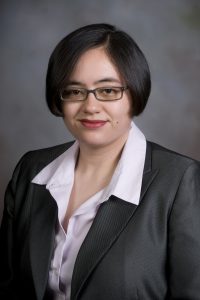 Deborah Aruguete
Deborah Aruguete
(Speaker, Status of Women Panel)
Associate Program Director, Geobiology and Low-Temperature Geochemistry
National Science Foundation
Deborah is a biogeochemist who has been serving since 2011 as an Associate Program Director at the National Science Foundation for the Geobiology and Low-Temperature Geochemistry program. Her career in science began when she was 18 and volunteered to help a mycologist at the Field Museum of Natural History in Chicago, even though she didn’t initially know what a mycologist was. This initial research experience, which entailed a lot of grubbing around in bogs and mosquito bites, led to a full-blown independent research project in analytical chemistry/biology examining the uptake of heavy metals and lanthanides in wild fungi of the Chicago region. After receiving her BS in Biological Chemistry from the University of Chicago in 1998 and spending a year working in Germany (including an internship concerning gas diffusion in polymers), she attended graduate school in physical chemistry at the University of California, Berkeley. There, she conducted research blending chemistry, materials science and physics, studying the structures of metallic and semiconductor nanocrystals and earned her Ph.D. in 2006. Subsequently she was an NSF postdoctoral fellow studying environmental (bio)geochemistry at Virginia Tech, investigating the chemistry of mineral nanoparticles as well as the effect of engineered nanoparticles upon environmental bacteria. In line with her interests in the environment and nanotechnology, Deborah helped to co-found the Virginia Tech Center for Sustainable Nanotechnology in 2010. In her spare time, Deborah enjoys hiking, cooking, traveling, and watching bad action movies.
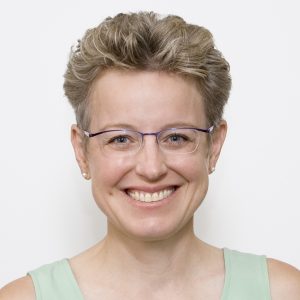 Susan Blessing
Susan Blessing
(Speaker, Status of Women Panel)
Professor of Physics
Florida State University
Susan Blessing earned her Ph.D. in experimental particle physics from Indiana University and did a postdoc at Northwestern University before becoming a professor at Florida State University. She is presently the Nancy Marcus Professor of Physics, the director of the undergraduate program in physics, and the director of the Women in Math, Science and Engineering program at FSU. She also chairs the APS Committee on the Status of Women in Physics for 2013. For much of her research career, she focused on searching for new phenomena that she never found (glueballs, top squarks, leptoquarks, …) and has now moved into doing actual measurements in electroweak physics. Since being at the university, she has developed an unexpectedly deep interest in undergraduate education – in physics and in general. When she was a student, she never would have imagined that she would still be concerned about the lack of women in physics so many years later.
 Beth Cunningham (Career Panel)
Beth Cunningham (Career Panel)
Executive Officer
American Association of Physics Teachers
Beth A. Cunningham earned a Bachelor of Science degree, a Master of Arts degree, and a Doctor of Philosophy in physics from Kent State University. After receiving her doctorate, Beth was a post doctoral fellow at University of Minnesota’s Hormel Institute. She taught for one year in the physics department at Gettysburg College immediately following her post doctoral fellowship. In 1989 she joined the physics department at Bucknell University as an assistant professor and progressed through faculty ranks to full professor in 2002. In 2000 she was named associate dean of the faculty in the College of Arts and Sciences. For over 10 years, she directed the Bucknell Physics Department Summer Undergraduate Research Program funded by the National Science Foundation (NSF). In 2006, she was appointed as Provost, Dean of the Faculty, and Professor of Physics at Illinois Wesleyan University. At Illinois Wesleyan University, Beth initiated a strategic curricular review to enhance academic programs and external reviews of academic departments. She also developed a child bearing and childrearing policy for faculty and staff. Beth joined the American Association of Physics Teachers (AAPT) as the Executive Officer on January 1, 2011. At AAPT, Beth is providing leadership on a number of physics education initiatives including the collaboration with the American Physical Society on the PhysTEC project, a major initiative to increase the number and quality of high school physics teachers, the development of a e-Mentoring program for new high school physics teachers, the Physics Teacher Resource Agents program for in-service professional development of high school physics and physical science teachers, and a new program with Project Kaleidoscope on developing curricula involving real world problems for undergraduate students. Beth has been active in educational and professional organizations at the national level such as chairing the Committee on Education for the American Physical Society in 2004. She was co-principal investigator on a NSF grant awarded to Project Kaleidoscope to prepare undergraduate faculty leaders in STEM and continues to contribute to this project. She serves as a Councilor in the Physics and Astronomy Division of the Council on Undergraduate Research. Beth’s research interests include the structure and function of phospholipid membranes and physics education research.
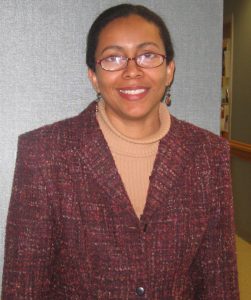 Marta Dark McNeese
Marta Dark McNeese
(Speaker, Minority Panel)
Professor of Physics
Spelman College
Marta Dark McNeese grew up in Prince George’s County, Maryland. She attended public schools there, and was inspired by the presence of NASA Goddard Space Flight Center, just one mile up the road from her high school, Eleanor Roosevelt. She attended the University of Virginia, where she received a BS in Physics with an Astronomy minor. Upon completing her studies at the University of Virginia, she received a PhD in Physics from MIT in 1999 working in the biomedical laser research group of the late Michael Feld. From MIT, she returned to the Washington, DC area as a postdoc at the Naval Research Laboratory. Since 2000, Dr. Dark-McNeese has been a professor at Spelman College, a historically Black college for women. Her decision to join Spelman was born from a desire to champion the field of physics as a viable career option for African American women. She is a member of the American Physical Society, the Optical Society of America, and the American Association of Physics Teachers. She has served on the APS Committee on Minorities and is currently a General Councillor. She has also co-chaired the Chemical and Biological Physics section of the National Society of Black Physicists. Her research interests are in laser interactions with biological tissues and electro-optical effects in biomolecules. Dr. Dark-McNeese currently resides in Atlanta with her husband and two children.
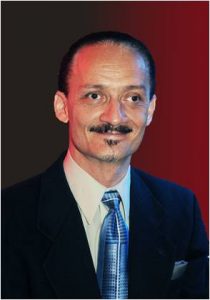 Peter Delfyett (Minority Panel)
Peter Delfyett (Minority Panel)
Professor of Optics, ECE, and Physics
University of Central Florida
Peter J. Delfyett is the University of Central Florida Trustee Chair Professor of Optics, ECE & Physics at The College of Optics & Photonics, and the Center for Research and Education in Optics and Lasers (CREOL) at the University of Central Florida. Prior to this, he was a Member of the Technical Staff at Bell Communications Research from 1988-1993, where he concentrated his efforts towards generating ultrafast high power optical pulses from semiconductor diode lasers, for applications in applied photonic networks. Some of his technical accomplishments were the development of the world’s fastest, most powerful mode-locked semiconductor laser diode, the demonstration of an optically distributed clocking network for high speed digital switches and supercomputer applications, the development of the lowest ever timing jitter from a mode-locked diode laser, and breaking the terabit per second data rate barrier from a single semiconductor laser. Dr. Delfyett served as Editor-in-Chief of the IEEE Journal of Selected Topics in Quantum Electronics, Associate Editor of IEEE Photonics Technology Letters, and Executive Editor of IEEE LEOS Newsletter. He is a Fellow of the Optical Society of America, Fellow of IEEE/LEOS, and Fellow of the American Physical Society and served as member of the Board of Governors of IEEE-LEOS and the Board of Directors of OSA. Dr. Delfyett has been awarded the National Science Foundation’s Presidential Faculty Fellow Early Career Award for Scientists and Engineers, which is awarded to the Nation’s top 20 young scientists. He has also received the University of Central Florida’s 2001 Pegasus Professor Award which is the highest honor awarded by the University. Most recently, he has been awarded the Edward Bouchet Award from the American Physical Society for his significant scientific contributions in the area of ultrafast optical device physics and semiconductor diode based ultrafast lasers, and for his exemplary and continuing efforts in the career development of underrepresented minorities in science and engineering. Dr. Delfyett has published over 600 articles in refereed journals and conference proceedings, has been awarded 34 United States Patents.
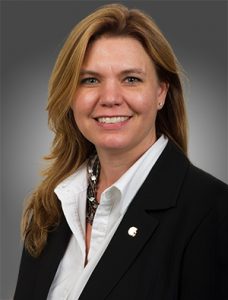 Teresa Dorman (Speaker)
Teresa Dorman (Speaker)
Associate Dean, College of Sciences
University of Central Florida
Dr. Teresa Dorman is the Associate Dean for the College of Sciences. In this role, she oversees graduate studies and serves as an advisor to faculty, staff and students. She has a master’s of Mental Health Counseling and an Ed.D. in Educational Leadership from the University of Central Florida. She started work at UCF in 1996 and joined the College of Sciences Dean’s office in 1999, where she established the current student- and program-oriented Graduate Services office. Her research and professional interests are in program and student development, including academic performance and progress, attrition and retention, student success, and issues of academic quality. Additionally, she is involved in a variety of special projects related to the graduate programs, oversees the dean’s office assessment, and provides database management support for the college.
 Bianca Hall (Graduate Panel)
Bianca Hall (Graduate Panel)
Graduate Student,
Theoretical Condensed Matter Research
University of Central Florida
Bianca is a German native, who got her Bachelor’s Degree in Electrical Engineering and Physics from the University of Alabama. She is now in her second year of graduate school and working on her Ph.D. on unconventional superconductivity. Bianca teaches undergraduate mechanics labs and enjoys tutoring students privately. She also serves as secretary for the Graduate Society of Physics Students at UCF.
Roxanne Hughes (Speaker, Status of Women Panel)
Assistant Scholar / Scientist
Director, Center for Integrating Research and Learning
National High Magnetic Field Laboratory
Roxanne Hughes received her PhD in Educational Policy in 2010 from Florida State University. After teaching high school chemistry for five years she noticed the differences in attitudes toward science based on gender. As a PhD candidate she chose to study these differences. Her research interest resulted in a dissertation and subsequent publications that focuses on the life histories of undergraduate women and their decision making process as it relates to staying or leaving their chosen STEM major. Dr. Hughes currently studies the decision making process as it relates to STEM persistence for middle school to graduate students. In particular her research focuses on the role that mentoring can have on students’ STEM identity.
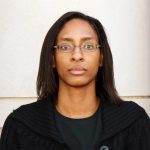 Cecille Labuda (Speaker, Minority Panel)
Cecille Labuda (Speaker, Minority Panel)
Professor of Physics
University of Mississippi
Cecille Labuda received her PhD in Physics in 2008 from the University of Mississippi. She also holds an MS and BS in Physics and a BA in Mathematics. Her research interests are in ultrasound; specifically its medical applications, bioeffects and interaction with materials. Currently she is studying ultrasound thermal dose in acoustic radiation force impulse imaging. This work is supported by NIH grant 1R21EB013763-01.
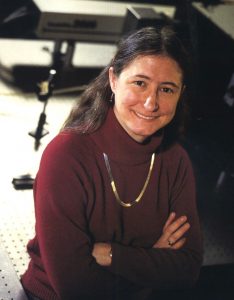
Laurie McNeil
(Speaker, Status of Women and Graduate Panel)
Professor of Physics and Astronomy, and Applied Sciences and Engineering
University of North Carolina at Chapel Hill
Laurie McNeil grew up in Ann Arbor, Michigan and attended public schools there. She attended Radcliffe College (Harvard University) and received an AB in Chemistry and Physics and an AM in Physics in 1977. She received a PhD in Physics from the University of Illinois at Urbana-Champaign and went to MIT in 1982 as a postdoc in the group of Millie Dresselhaus. In 1984 she became the first female tenure-track faculty member in the Department of Physics and Astronomy at the University of North Carolina at Chapel Hill. She has served as Department Chair and has taken other leadership roles within the university, and has won awards for enhancing the roles of women in science as well as for contributions to the institution’s educational mission. In the American Physical Society she has served as Chair of the Committee on the Status of Women in Physics, Chair of the Southeastern Section, and as a member of the Executive Committee of the Division of Condensed Matter Physics. She has participated extensively in the “Climate for Women” Site Visit Program of the APS and was a member of the joint APS/AAPT Task Force on Undergraduate Physics. Her research focuses on experimental studies of the optical properties of semiconductors and insulators, including crystalline organic charge-transfer compounds.
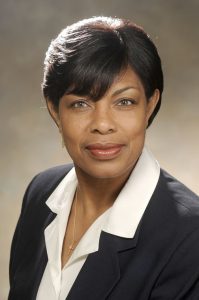 Shelia Nash-Stevenson (Speaker, Career Panel)
Shelia Nash-Stevenson (Speaker, Career Panel)
Aerospace Engineer
NASA Marshall Space Flight Center
Dr. Shelia Nash-Stevenson received a Ph.D. in physics from Alabama A&M University 1994. This educational achievement ranked Dr. Nash-Stevenson among the first African Americans to receive a Ph.D. from Alabama A&M University, the first African American female to receive a Ph.D. in physics in the State of Alabama and one of less than 20 African American females to hold a Ph.D. in physics in the entire United States. She has worked as a Physicist for the US Army Ballistic Missile Defense Systems Command, Scientist for Nichols Research Corporation, Member of the Technical Staff for Hughes Aircraft Company, Huntsville Engineering Center, and an Adjunct Professor at Alabama A&M University. Dr. Nash-Stevenson is currently employed with the National Aeronautics and Space Administration (NASA) Marshall Space Flight Center as an Engineer with the Discovery, New Frontiers, Lunar Quest Programs Office. The main objective of this office is to enhance our understanding of the solar system by exploring the planets, their moons, and small bodies such as comets and asteroids. Dr. Nash-Stevenson has co-authored several papers in the area of Laser Upconversion and holds a patent for an Optical Fiber Holder. She has served on dissertation and thesis committees, and she also continues mentor other graduate and undergraduate physics students at Alabama A&M University.
 JoAnn Newman (Career Panel)
JoAnn Newman (Career Panel)
President and CEO
Orlando Science Center
JoAnn Newman came to OSC in February 2003 as Director of Exhibits and became V.P. for Exhibits and Operations in 2006. After a national search in Fall 2008, she was named President and CEO on January 5, 2009. Over the past six years, she has successfully directed the development of many new exhibitions and programs at the Orlando Science Center, During her tenure, she has led the teams responsible for implementing the original exhibits, Touch the Sky and Discover the Daytona 500, and the extremely popular Otronicon events. She was also responsible for overseeing daily operations, human resources and the overall guest experience. She holds the M.S. and B.S. degrees in Industrial Engineering from Purdue University and Pennsylvania State University, respectively. She has more than 20 years of engineering, operations and management experience with high technology companies, including AT&T Microelectronics, Cirent Semiconductor and Agere Systems. In her former position, as Vice President and Director of Manufacturing for Agere Systems, she was responsible for 650 employees, manufacturing operations, equipment engineering, maintenance, industrial engineering and factory scheduling, with a $200M/year budget.
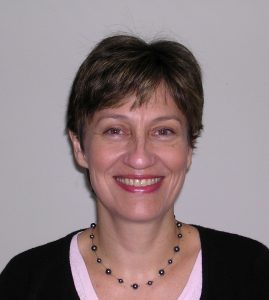 Dragana Popovic
Dragana Popovic
(Career Panel, Undergraduate Panel)
Scholar / Scientist
National High Magnetic Field Laboratory
Dragana Popovic received a PhD in Physics from Brown University in 1989. After working at the IBM T. J. Watson Research Center in Yorktown Heights, NY, as a postdoctoral researcher for three years, she joined the City College of the City University of New York as an assistant professor of physics. In 1997, she joined the research faculty at the National High Magnetic Field Laboratory (NHMFL) at Florida State University (FSU). She is an internationally recognized researcher in experimental condensed matter physics and a leading expert on out-of-equilibrium charge dynamics in strongly correlated systems. She is a Fellow of the American Physical Society. Since 2004, she has been serving as Director of the NHMFL’s Diversity Program, which is aimed at increasing the recruitment and retention of both faculty and students from underrepresented groups in STEM fields. Currently, she is also one of the co-PIs on the NSF ADVANCE-PAID grant “Collaborative Research – Alliance for the Advancement of Florida’s Academic Women in Chemistry and Engineering”, and serves on the FSU’s Diversity & Inclusion Council focusing on faculty recruitment and retention.
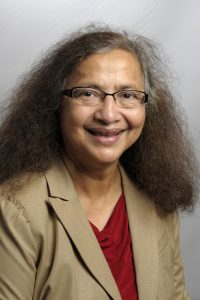 Talat Rahman (Speaker)
Talat Rahman (Speaker)
Pegasus Professor and Chair,
Department of Physics
University of Central Florida
Talat Rahman is a Pegasus Professor and Chair of Physics Department at University of Central Florida. Prior to joining UCF in September 2006, she served as a University Distinguished professor in Physics at Kansas State University. Her research interests focus in computational designing of functional nanomaterials through microscopic understanding of their chemical, magnetic, optical and other novel properties. Her work also engages multiscale modeling for the simulation of epitaxial growth and surface morphological evolution. Her work is funded through grants from the US Department of Energy and the National Science Foundation. She is a Fellow of the American Physical Society and a recipient of the Alexander von Humboldt Research Prize (2000), Higuchi Research Award from the University of Kansas (2002), and Distinguished Graduate Faculty Award, Kansas State University (1998). She is engaged in establishing research initiatives in developing countries such as Pakistan. She is a mentor to a diverse group of students and junior scientists. She has been engaged nationally and internationally in efforts to promote the participation of women in science and technology related careers. At Kansas State University she helped establish a program (Developing Scholars) for enhancing the retention and graduation rates of students from historically underrepresented groups. For the past 10 years she has been organizing a workshop in Pakistan on Nanoscience and Condensed Matter Physics at the annual International Nathiagali Summer College which was started by Nobel Laureate Professor Abdus Salam. She is known for her ability to collaborate with experimentalists and does so with some of the leading groups worldwide. She grew up in Bangladesh and Pakistan and received her PhD from University of Rochester.
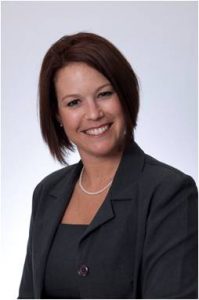 Karen Ratcliff (Career Panel)
Karen Ratcliff (Career Panel)
Business Development for Environmental Systems and Services
Siemens Energy, Inc
Karen Ratcliff is responsible for Business Development for the Environmental Systems and Services business within Siemens Energy, Inc. She also handles other business development initiatives such as technology and new business evaluations, regionalization and mergers and acquisitions. Prior to her current role, Karen was responsible for Siemens post-combustion carbon capture process market introduction in the United States. Ms. Ratcliff joined Siemens in 2007. Karen was an Operations Manager at a chemicals production facility. She also served in multiple process engineering and planning and optimization positions in refining at ExxonMobil. She holds a Bachelor’s Degree in Chemical Engineering from Louisiana Tech University and a Master of Business Administration degree from the University of Texas at Austin. She has been a member of the American Institute of Chemical Engineers for over ten years. Karen is very active in the community and enjoys donating her time to various organizations, especially those focused on education.
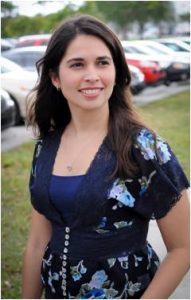 Ida Rodriguez (Graduate Panel)
Ida Rodriguez (Graduate Panel)
Graduate Student, Physics Education Research
Florida International University
Idaykis Rodriguez is a Cuban born physics graduate student in her fifth and final year of her PhD in Physics Education Research at Florida International University, Miami. She received her Bachelors of Science in Physics from FIU as well and focuses her research on graduate student development of physics expertise. Her dissertation is a qualitative ethnographic study of graduate student expert identity formation. Rodriguez uses membership in a Community of Practice as a theoretical framework to understand expert membership and its development within a physics research group.
 Karen Thompson (Career Panel)
Karen Thompson (Career Panel)
Center Chief Technologist
NASA Kennedy Space Center
Karen Thompson is the Chief Technologist of the NASA John F. Kennedy Space Center, where she leads research and technology programs throughout the center. Included in these research and technology programs are projects worked collaboratively with academia, industry, other government agencies, and other NASA centers. Prior to joining NASA, Karen worked in industry as a research polymer chemist, developing specialty materials principally for Department of Defense applications. Karen joined NASA in 1988, where she first worked as a research scientist-with her best known accomplishment her invention of electrically conducting polymer coatings that can be sprayed or brushed onto surfaces, thereby imparting corrosion resistance to the coated surface. Karen was the original inventor of this breakthrough technology and led a team of NASA and Department of Energy Los Alamos National Laboratory (DOE LANL) employees to further develop these novel coatings, with the resultant patent winning the Distinguished Patent Award in 1997 from the LANL. In 1993 Karen moved into management in NASA where she served in a series of positions, including managing collaborative partnerships involving NASA and external partners, managing advanced technology programs for KSC, supervising teams of researchers, serving as the Exploration Science and Technology Manager for KSC, and serving as Associate Director of the Applied Technology Directorate prior to her current position. Karen has received many awards for her accomplishments while working for NASA, including the prestigious NASA Exceptional Service Medal, KSC Invention of the Year, Certificates of Commendation, an Executive Safety Forum Award in 2009, and Space Act Awards. Karen has chaired several technical conferences (national and international), associated with such organizations as the American Chemical Society, the Gordon Research Conferences, and the American Society of Testing and Materials.